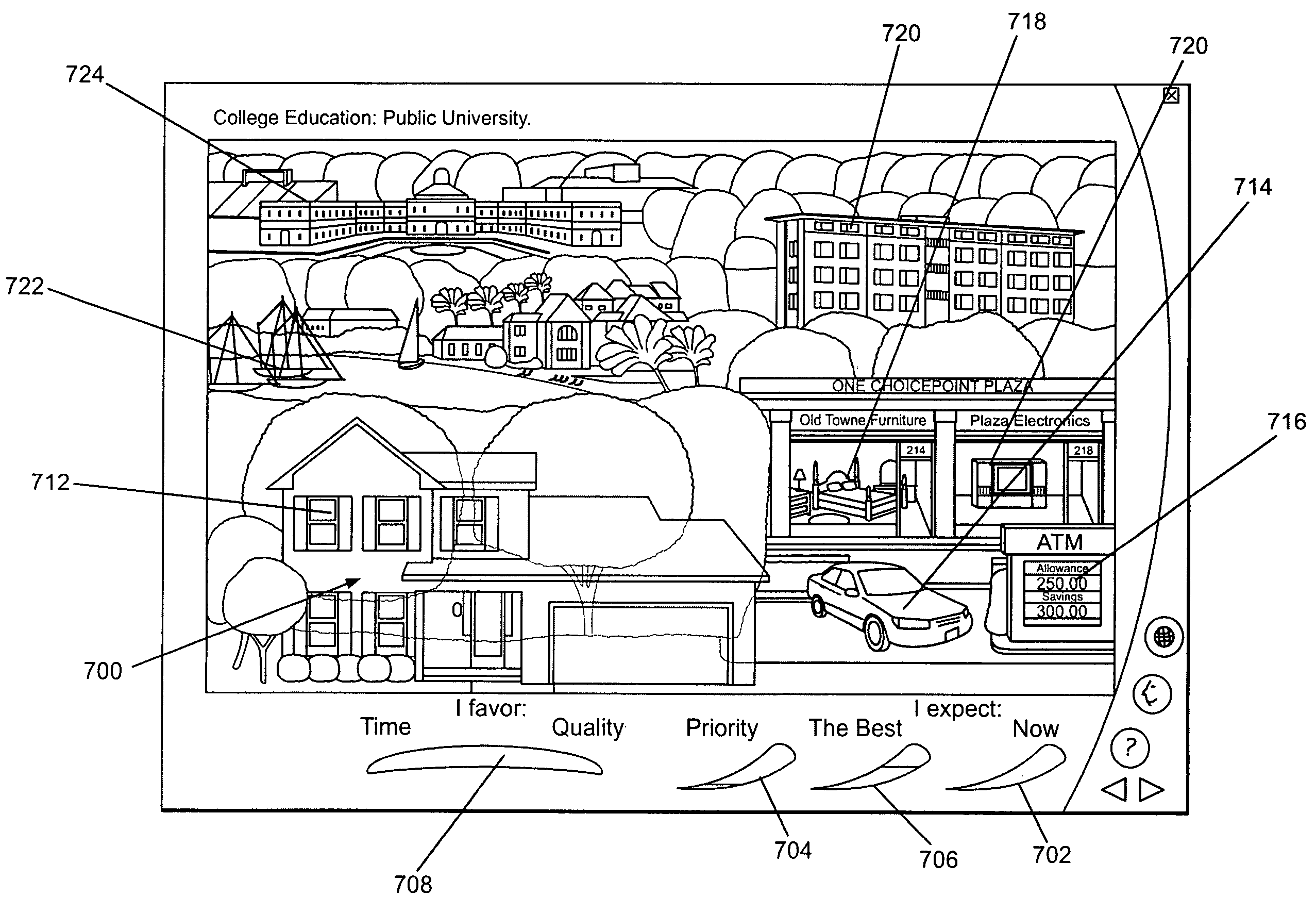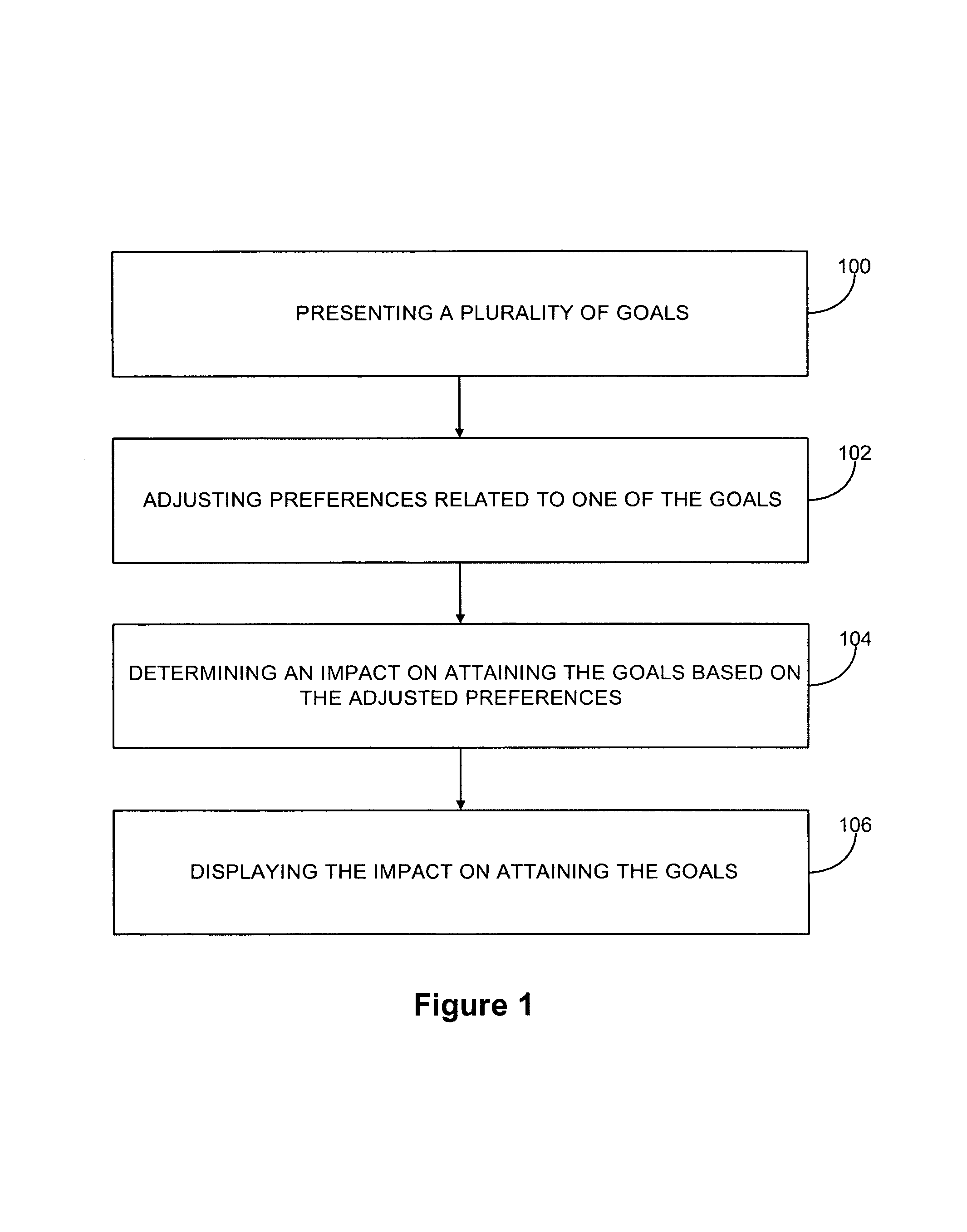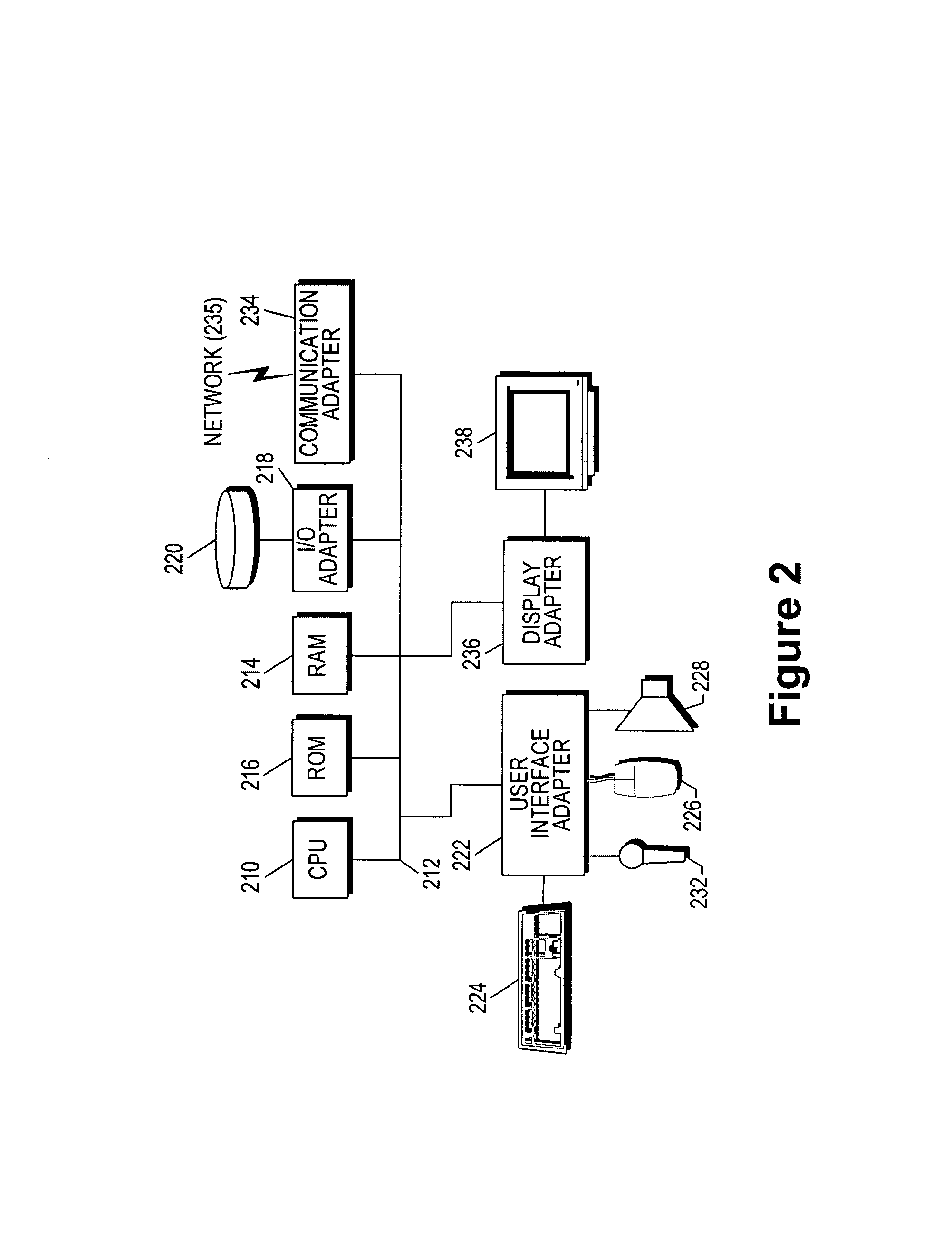This has resulted in substantial expenditures for accounting by virtually all consumers.
Despite a proliferation of personal financial management
software in recent years, no means have been developed to eliminate the time and expense of data collection and entry or to enhance on-line financial management.
The
standardization of financial products reduced
data processing and marketing costs for financial institutions, but resulted in financial services that were often ill-suited for consumers.
Additionally, many of the terms of the financial service products are fixed and inflexible.
These products have not afforded consumers the ability to alter their consumption, investment or savings behavior to best suit their own or the economy's changing circumstances.
Moreover, product proliferation in the financial services market has presented the
consumer with a confusing array of choices without a convenient, objective or clearly documented means of selecting the best combination of financial services to realize the
consumer's financial objectives.
Financial institutions usually possess only limited knowledge of the customer's total financial condition and hence they often try to sell a product that is most advantageous to the institution, not the customer.
Moreover, at the present time customers must spend a substantial amount of time coordinating and monitoring their holdings of many different financial services from many different suppliers.
Few individuals have the time, interest or ability to perform this difficult task well.
Despite the development of some new financial products, such products have not succeeded in meeting the goals of either the mortgagor or the financial institutions.
From the point of view of the consumer, problems remain concerning the relative inflexibility of financial service products.
Under this arrangement, the shoe store realizes significant cost efficiencies at the expense of its customer's comfort.
Products currently offered do not take
advantage of recent advances in information and problem solving technologies.
Nor do they take
advantage of the deregulation of the financial services industry.
Moreover, financial service products do not adequately accommodate either the diversity or the constantly changing nature of individuals' financial preferences or circumstances.
Financial service products are not offering the consumer a full range of financial services that would help maximize his financial return and make housing affordable to a greater number of individuals.
In addition to the failing of the financial service product offerings, there are certain fundamental problems with the methods and apparatus currently used to effect the exchange of goods and services, savings, investments and borrowing.
Clearly, the small percentage of
credit card and electronic payments reveal a critical failing in the current methods employed to effect these methods of exchange.
With regard to transactions utilizing credit cards, although one receives a piece of paper, the transactions are not incorporated into any kind of systematic accounting that is held or may be easily accessed by the consumer.
They do not, however, include the attendant costs required for a consumer to then efficiently serve as the
systems integrator for her banks, brokers, insurers and merchants.
In addition to the approximately $50 billion cost of production and
processing exchange transactions, currently there is no adequate means of assuring the security of transactional data, and tracking that data and compiling it for review.
Currently, there is no convenient or adequate means of tracking transactional data for consumption, savings, investments, bonuses, discounts and rebates associated with these activities.
This is financially injurious to the U.S. Treasury, and it is very inconvenient for consumers.
Moreover, under the current
system of exchange it is impossible for economic policy makers to get an accurate real time reading on the state of the economy, and consequently, economic policy is frequently ill-timed and misguided.
This makes it difficult for consumers to properly visualize the value of their potential savings and investment.
This has led to a consumption-based society with inadequate levels of personal savings, potentially resulting in disastrous long term consequences for the American economy and society at large.
Furthermore, this excessive reliance on paper-based transactional media has an adverse environmental
impact and may, according to certain studies, directly contribute to
global warming.
There is a significant adverse environmental
impact of the paper currency and paper check-based society.
None of the current forms of exchange provide a sufficient benefit for consumers to change their
modes of transactional behavior.
The current
system of exchange, savings, investment and borrowing makes it very difficult to adequately manage
risk exposure for and by consumers, banks, and the U.S. Government. Accordingly, each year, approximately 10 million individuals are forced to file bankruptcy; financial institutions incur substantial bad debt losses; and the U.S. government is forced to write off uncollectible tax revenues.
However, as demonstrated above, the total direct and indirect social, economic and environmental costs associated with the predominantly cash and check-based current
system are far greater.
 Login to View More
Login to View More  Login to View More
Login to View More 


